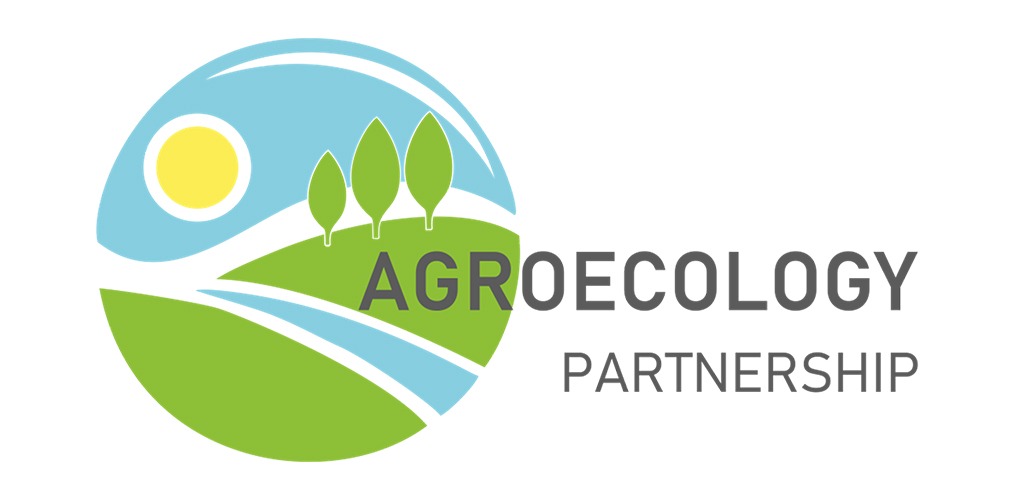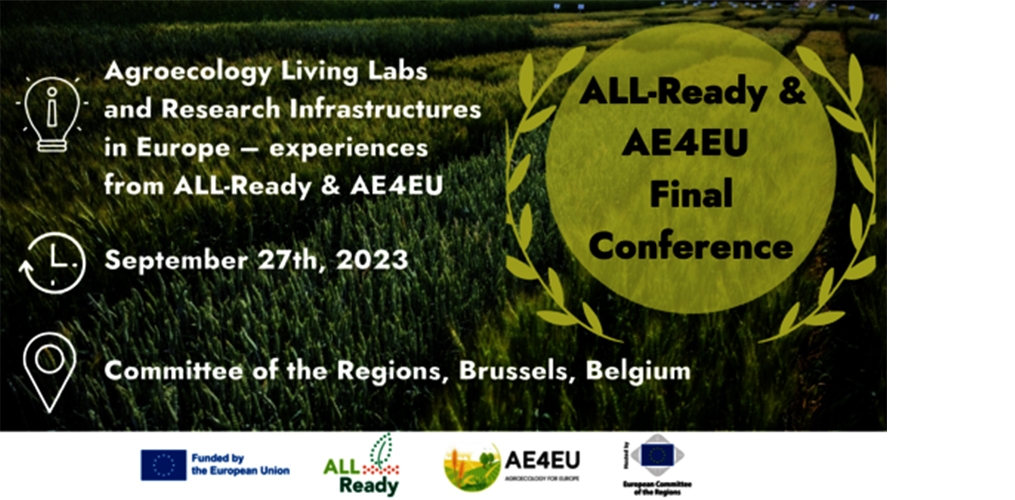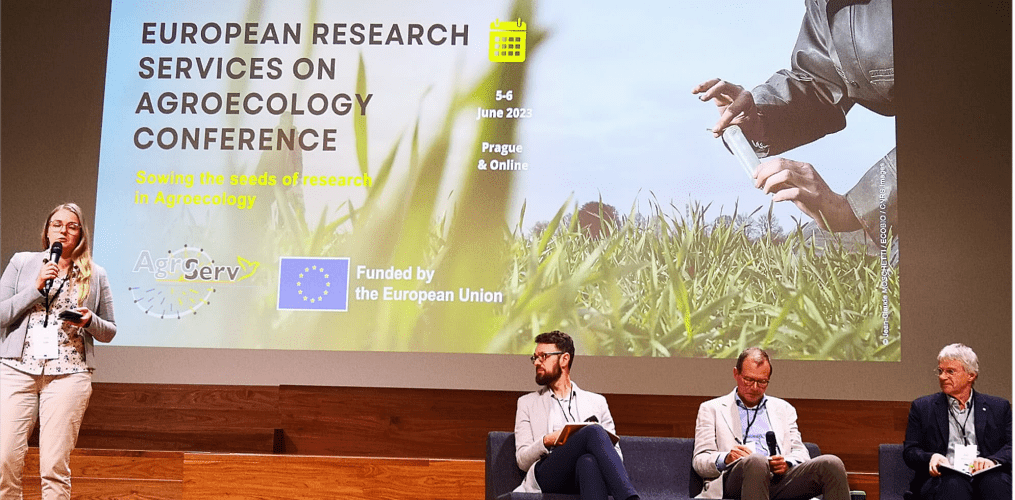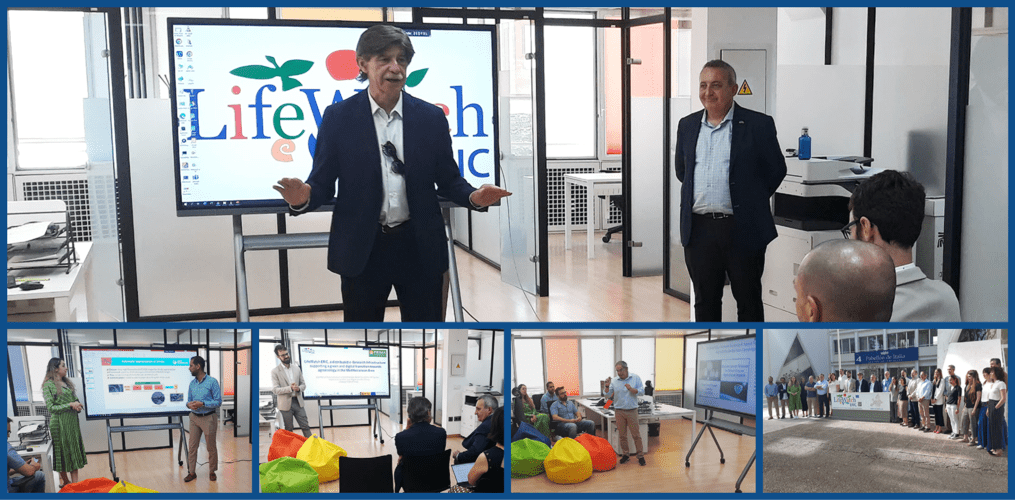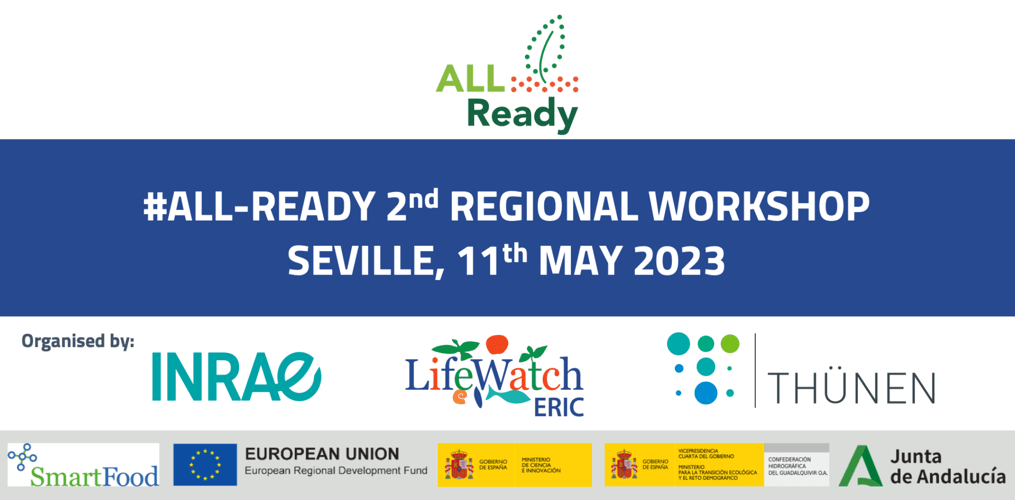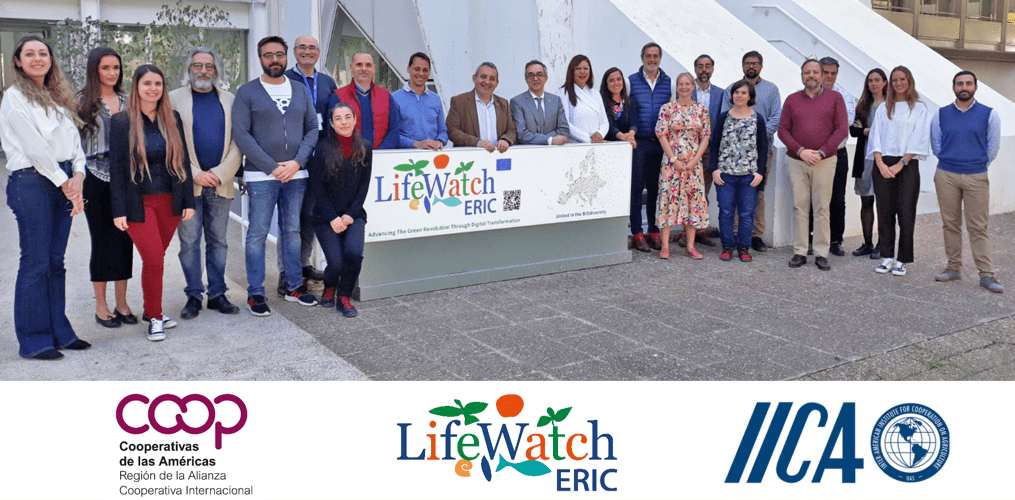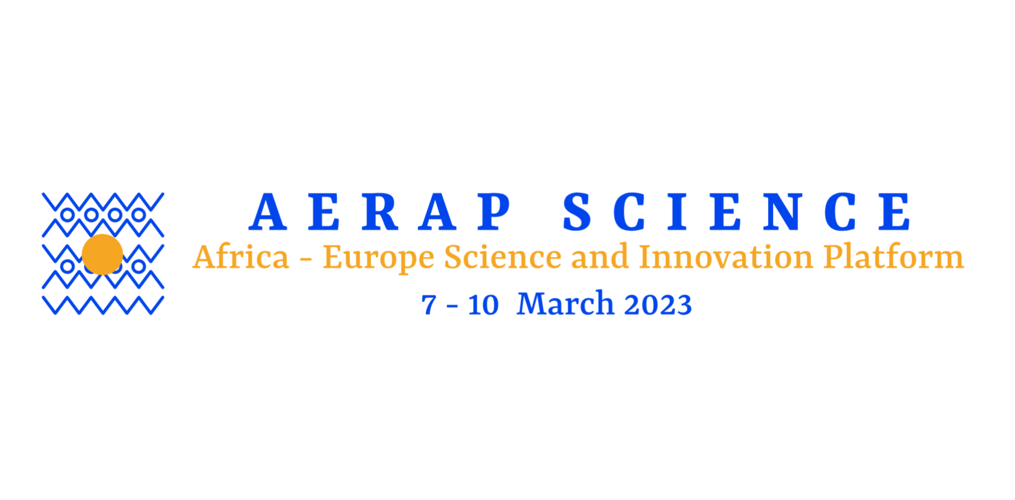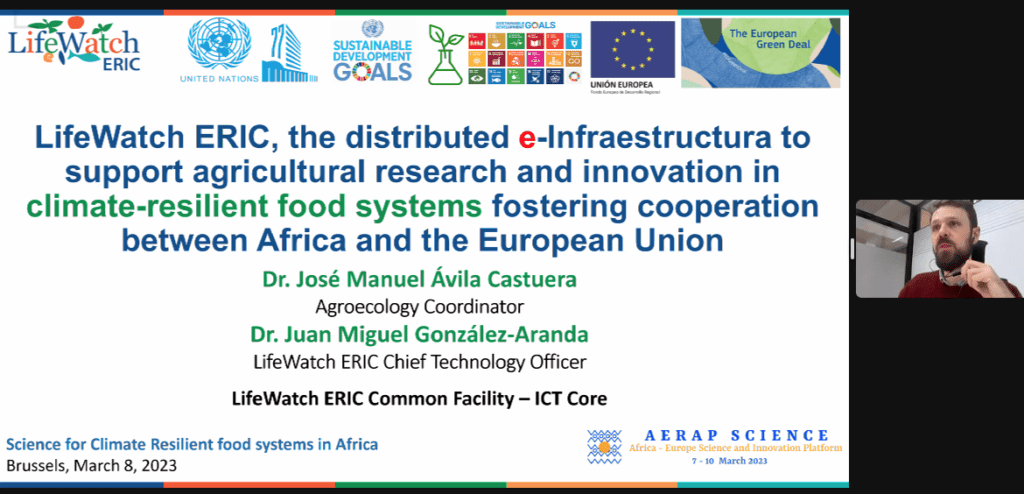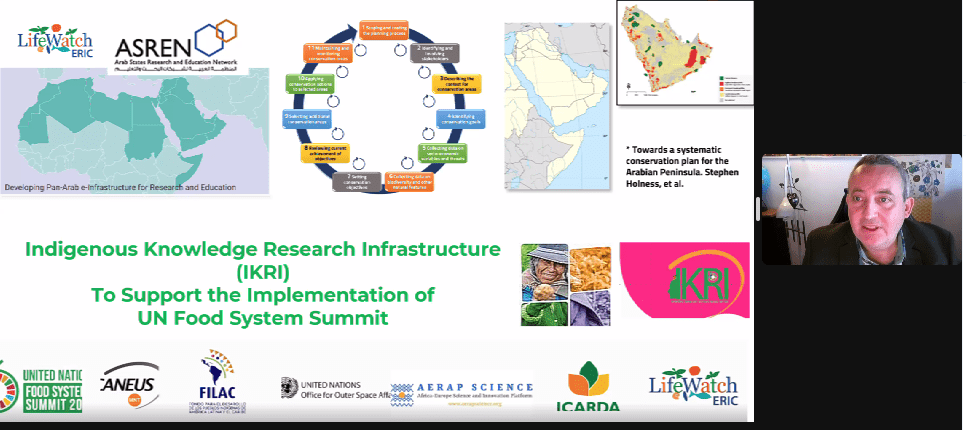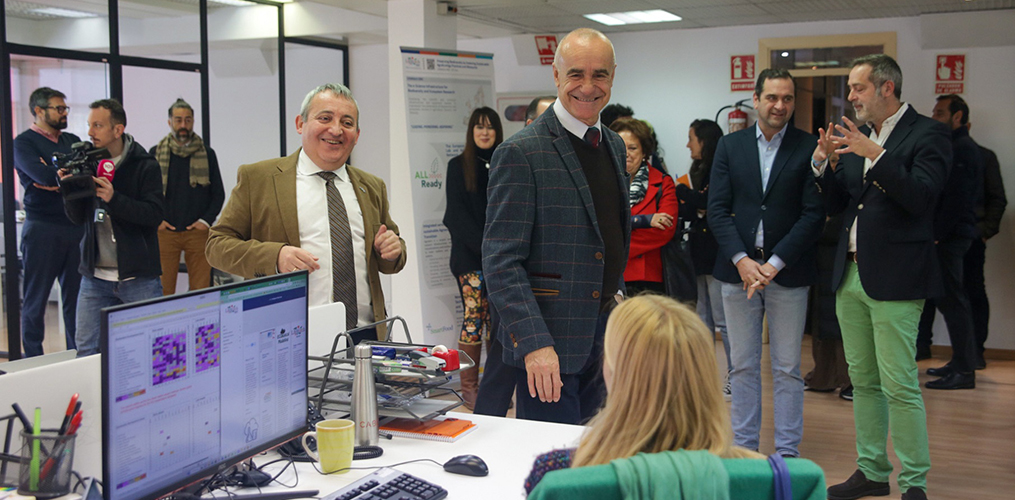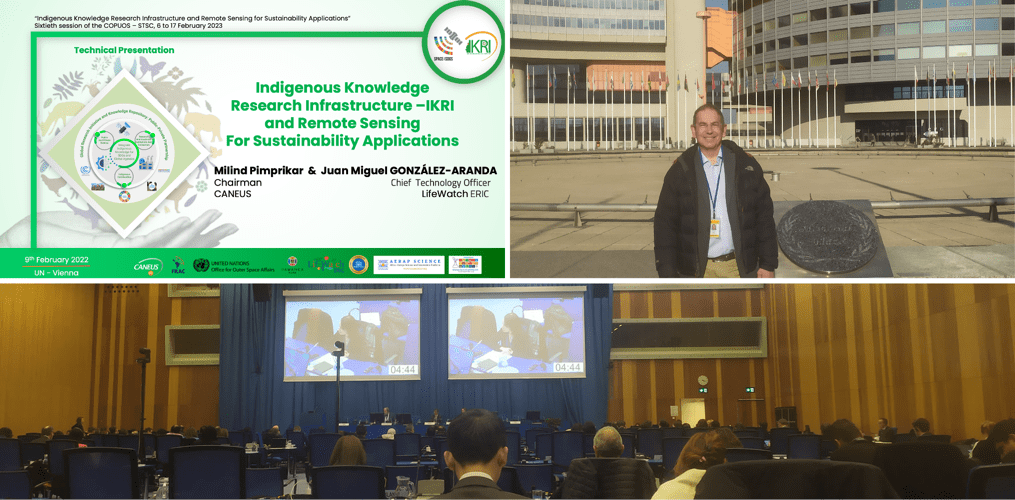On 11 May, LifeWatch ERIC hosted, at its ICT Core in Seville, the second regional workshop of the European project ALL-Ready: “Accelerating Agroecology Transition: Your potential role and benefits of contributing to a European network of Living Labs and Research Infrastructures”.
LifeWatch ERIC is is one of the main partners in this highly strategically relevant project. Its Agroecology team, led by José Manuel Ávila, Daniel Caro and Iria Soto, coordinated the morning session of the workshop together with Gerald Schwarz (Thünen Institute), Isidora Stojacic (BioSense Institute), Ophélie Bonnet (INRAE), Isabelle Couture (ENoLL – European Network of Living Labs), Jo Bijttebier and Sylvie Fosselle (ILVO Living Lab Agrifood Technology).
In the presentation, Gerard Schwarz marked the objectives of the implementation plan, stressing the importance of ensuring relevance for actors across Europe and specifying that this work in progress is to be finalised in early autumn 2023:
- To provide a structured framework to sustainably implement, monitor and adapt the European Network in the long term;
- To ensure its effective contribution to the partnership on Agroecology;
- To deliver benefits to the agroecological community in Europe.
During the workshop, the participants formed several groups to exchange experiences and discuss solutions about the challenges of Agroecology Living Labs and Research Infrastructures, and to explore possible roles and contributions of the European Network, in relation to:
- Thematic priorities of the Network;
- Communication, networking and demonstration activities;
- Funding requirements and strategies.
The ALL-Ready workshop served also to advance the production of ideas and proposals to further improve the understanding of which thematic areas and what kind of measures and activities, as part of the European Network, would be especially useful.
The coordinator of the session, Gerard Schwarz (Thünen Institute of Farm Economics), led the working day to discuss:
▪ Insights into topics, themes and issues that the European Network should address;
▪ Insights into type of communication and networking activities that are particularly needed;
▪ Insights into practical solutions foe addressing funding gaps;
▪ Insights into capacity building, including regional gaps in competences, and the role of local actors to support development of competences.
The perspectives and recommendations of the participants will be taken into account to for the implementation plan of a European Network.
The CEO of LifeWatch ERIC, Christos Arvanitidis, intervened in the closing session. He explained that it is necessary to build all together the European Network of Agroecology Living Labs and Research Infrastructures: “And as a Research Infrastructure focused on biodiversity and ecosystem, LifeWatch ERIC aims to support the community of practices to provide science-based evidence about agroecology practices and contribute to knowledge and data sharing to demonstrate and make visible its added value and impacts”.
Christos Arvanitidis also stated that LifeWatch ERIC is working to provide digital tools / e-Services to facilitate the adoption of agroecology practices based on collaboration with the different stakeholders (researchers, farmers, policymakers and citizens), but also in association with other Research Infrastructures. And he especially stressed that: “In the coming years, in the EU Partnership on Agroecology, LifeWatch ERIC will lead the design and implementation of a conceptual framework to monitor the AE transition and the consequent impacts. We encourage to work with us, as CoP, to co-design the specific tools that fit your needs to all together contribute to the make the European agricultural sector more sustainable, resilient and responsive to societal and policy demands”.
Future workshops of ALL-Ready will be held today 12 May, in Budapest, and on Monday 15 May, in Frankfurt. All the efforts made are directed towards the final conference, which will take place on 27 September 2023, in Brussels.
